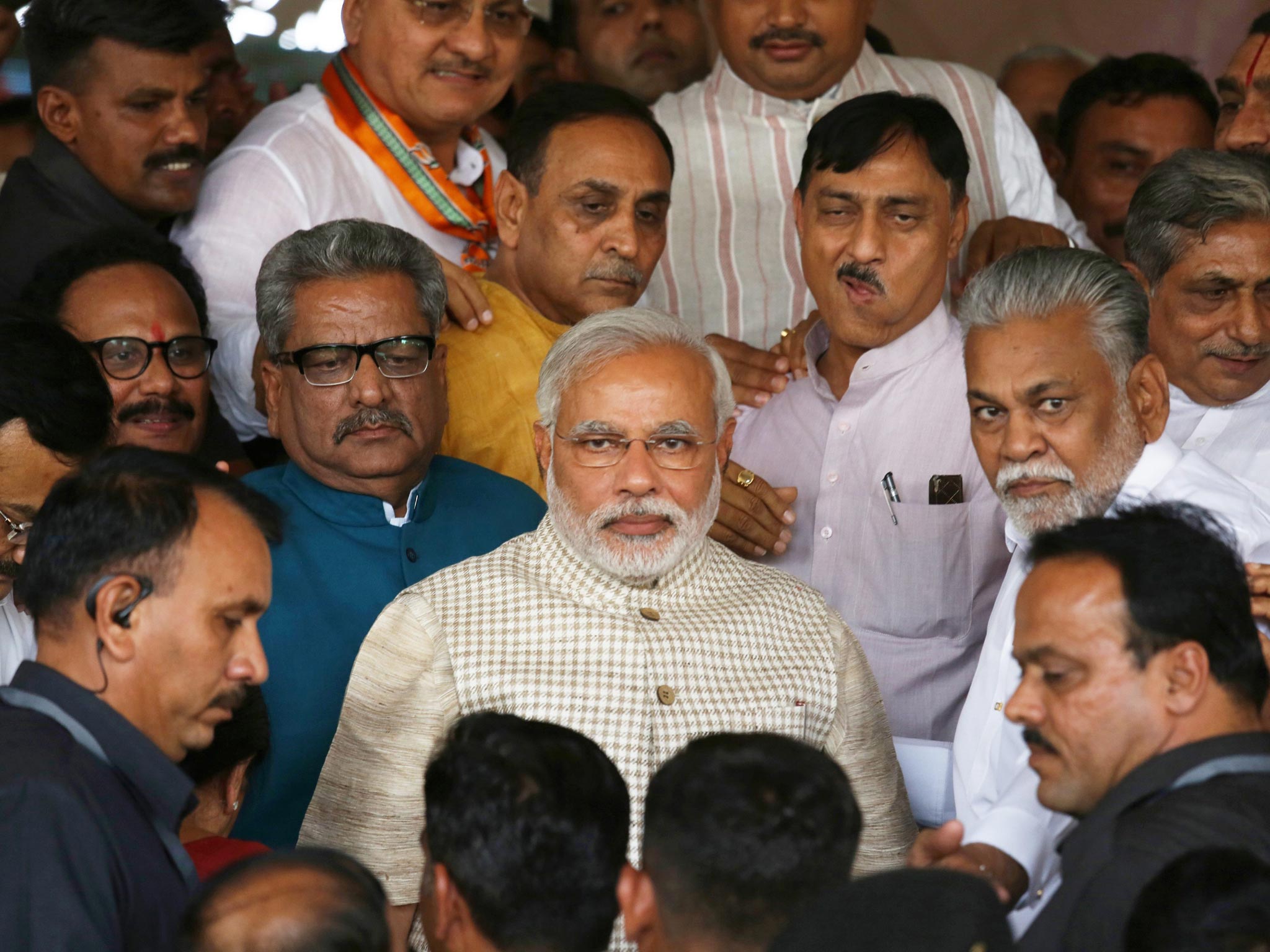Here's what the UK's Asian community thinks about Narendra Modi
They will never agree about India's new prime minister, and the debate will always continue to rage

From the day I started presenting a daily radio phone in show on the BBC Asian network over six years ago, one man's presence has loomed large over so many of the debates I have chaired live on the radio.
As a living symbol of India's fractured communal relations, Narendra Modi is probably the most controversial politician in India.
After only being in the job a few months as Chief Minister of the Indian state of Gujarat, in 2002 he was accused of doing very little to stop a clash between Hindus and Muslims in which 1,000 people were killed, most of them Muslim.
It has been a matter of fierce debate ever since as to how complicit he was in the massacre. The Supreme Court in India ruled that there was no prosecutable evidence against him, which his supporters repeat whenever anyone tries to question him about it.
Yesterday he was sworn in, after winning the biggest general election in the world. It was the most spectacular election victory in over a generation. For the first time since 1984 one party had a majority and the incumbent Congress party were roundly humiliated by the electorate.
On the day the results were announced my production team at the BBC were very busy phoning up guests for my show. We all discussed what angle we would go with and decided to ask our audience whether religious minorities had anything to fear from Modi.
Finding both sides when hosting debates about Modi can be difficult as his supporters have in the past been reticent to speak to us publicly, but on the morning of this stunning victory we found it less difficult.
My first guest was Nashiket Joshi, who is a senior youth leader for Overseas Friends of BJP, Modi's party.
I asked him if he could explain why some Indian Muslims are worried about the new administration.“We never differentiate their religions, their caste,” he replied.
I then reminded him of what had happened back in 2002. “Riots happen" was his response; "the Supreme Court of India don't have any pending cases against Mr Narendra Modi.”
According to Joshi, minorities had nothing to fear under Modi. “They are all Indians,” he said.
My next guest was Ravinder Singh, CEO of Khalsa Aid. I began by reading out to Ravi some of the tweets he had sent out earlier that day which read "butcher Modi the next prime minister" and 'right wing fascists win elections in India."
I asked him if he stood by those words, “Yes” was his immediate reply. After a few minutes with my guests I opened up the phone lines and started to speak to the BBC Asian Network's audience.
The first three callers were all pro-Modi, happy and optimistic now that the BJP were in charge. The third caller was a man called Prafulla from Birmingham, he made a point that must have chilled many Muslims hearts to the core.“The Muslim people in India: Islam is their religion but inside their heart they are Hindu.”
Anil in Leicester rang in to say “perfect justice is a perfect myth,” seeming to suggest that the relatives of those who died in the 2002 Gujarat Riots would never find what they were looking for.
After an hour of intense debate on Modi there was clearly a split along religious lines here in the UK. It highlighted the two open wounds that still dwell on the body of the British Indian community: Delhi's communal riots in 1984, and the violence in Gujarat eighteen years later.
There was a deluge of texts, emails, tweets and Facebook posts throughout the show, but for me this one summed up the tensions between Indians and the UK's diaspora communities the best: "British Indians have no concept of life of an Indian in India, they sit here with all the comforts of life trying to stir up trouble in their homeland. They are no better than terrorists."
From this it's clear that some would prefer there to be no debate at all. But this is never going to happen. Wherever there are Asian communities in the world, Narendra Modi will continue to be a burning topic.
Join our commenting forum
Join thought-provoking conversations, follow other Independent readers and see their replies
Comments